THE BBC’S BLOCKBUSTER SUBMARINE DRAMA

At the time of writing we in the UK are four episodes into the BBC One series ‘Vigil’ and my friends are wondering if I am throwing things at the TV. I have to admit that, as a retired member of the ‘Silent Service’, I watched the first episode with considerable trepidation. Could the BBC realistically portray what it is like to be on patrol in a nuclear missile-carrying submarine (SSBN)?
Incidents that punctuate the story in ‘Vigil’ – including murders, a fishing vessel lost in mysterious circumstances, near collisions, emergency dives and a reactor ‘scram’ – are basically authentic enough, if not identical to real-life episodes.
For example, the British fishing trawler Antares was sunk and all four of the crew drowned when its nets were snagged by the submarine HMS Trenchant off Scotland in 1990. There have been several collisions between submarines and civilian vessels over the years. Indeed, I had a too-close encounter myself while captain of a submarine. In my case it was with a super-tanker coasting silently up channel with its engines stopped.
Iain Ballantyne, in his book ‘Hunter Killers’ (which tells the story of the Cold War under the sea), recounts how in the early 1970s my submarine, HMS Repulse, was chased by a Soviet spy vessel as the Polaris missile boat was heading out on a nuclear deterrent patrol. I had to conduct a high-speed emergency dive to avoid a dangerous close quarters encounter, as vividly recounted in ‘Hunter Killers’.
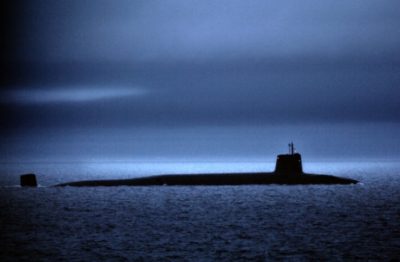
However, while no one has been murdered at sea aboard a British nuclear submarine, in 2011 a very disaffected and drunk sailor onboard the attack boat HMS Astute shot and killed an officer while the vessel was alongside in Southampton.
All of us submariners have experienced emergencies such as fire, flood and reactor ‘scrams’, although the idea of refuelling with diesel from a tanker – as proposed in ‘Vigil’ – to keep the emergency propulsion going, is a credibility stretch too far. It would never happen in a nuclear submarine on patrol.
Then there is the drug-taking in a submarine aspect of ‘Vigil’. It is true that in late 2017 nine sailors who had served in the Trident submarine were dismissed from the Royal Navy after failing drug tests, though they did not take them while actually aboard the submarine either at sea or in port. So, things similar to what we have seen in ‘Vigil’ do happen but not all aboard one boat, or in such short order.
I was concerned that some of the above aspects might lead non-naval viewers to form a poor opinion of our Service but apparently not. It seems they recognise dramatic licence when they see it.
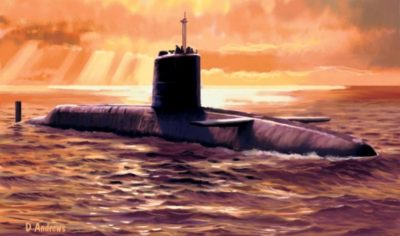

Yet, they may well have believed that a dead body would be stored in a torpedo tube. If a death occurred aboard a submarine while on patrol, then in reality space for it would be created in a fridge. In Iain Ballantyne’s ‘Hunter Killers’ the story of a rating who went down with appendicitis while at sea in a Polaris submarine is told. The submarine could not break the nuclear deterrent patrol to put him ashore, but fortunately he made it home alive and so did not end up in the fridge. Torpedo tubes are good for storing beer but are not cold enough for corpses. Furthermore, no missile submarine would cut short a patrol until relieved by another boat.
Then there is the depiction in ‘Vigil’ of a Police detective being put aboard the submarine to investigate a murder. Under no circumstances would the Police be embarked until the submarine was well off patrol and back in home waters on the surface. Embarkation on a submarine at sea could, as depicted in the TV show, be via winching down from a helicopter, all the while mentally repeating – as I always fervently did – the critical advice ‘don’t raise your arms’. For if you do, then you fall out of the ‘strop’.
However, shame on the BBC for a serious factual error. The captain of HMS Vigil tells Detective Chief Inspector Amy Sylva in Episode one that Vigil’s missiles are at 15 minutes notice to fire, whereas HM Government publicly states on its website: “Our submarines on patrol are at several days’ notice to fire and, since 1994, we do not target our missiles at any State.”
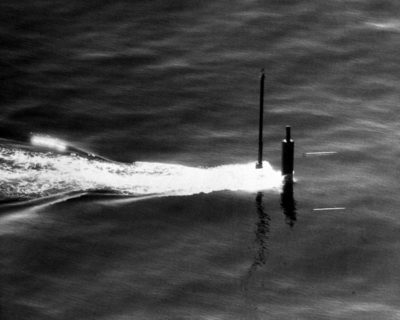
I appreciate this is a far less dramatic scenario but the BBC has seriously misled viewers because, contrary to what some may think from TV programmes and media reports, there have been no nuclear threats since the Cold War ended that would justify high alert status of ‘15 minutes to fire.’
Where Vigil departs furthest from onboard reality is the way in which the crew interact. These sins include: Chief Petty Officer Burke – the murder victim – openly and angrily demanding that the Commanding Officer (CO) breaks off patrol to help a stricken trawler; the second-in-command (XO) furiously telling the CO to his face he is not up to his job; the CO criticising officers in front of the crew. It just would not happen.
As a former ‘Teacher’ who, during the Cold War trained and qualified officers for submarine command – the famous ‘Perisher’- neither officer mentioned above in real-life would possess the right personal skills and management qualities to have passed. Even if they had, the crew of a submarine bond very tightly and authority must be earned and respected up and down the chain. Wrong ‘uns would not last long. But the ‘Vigil’ plot – sticking to a tied and tested successful TV formula – requires mystery, suspicion and these personal feuds – and so it must be.
Last but not least, I can only be jealous of the very generous living and working spaces aboard the fictional ‘HMS Vigil’. Trident submarines may be as big as a six-story block of flats with rounded corners out of the water but they are so densely packed with equipment that there is very little room left for the crew. You could hold a dance in Vigil’s ‘ bomb shop’ (torpedo compartment). Perhaps that is still to come! From which you can conclude that Vigil is no more true to life technically than, some would argue, ‘The Crown’ is on Netflix.
The big question really is whether it works as a TV drama in its unusual setting. For me it does. I am as gripped by the plot as much as any of my civilian friends. Yes, the imagination is stretched but there is a welcome lack of gun battles, sirens and car chases while, in good ‘Line of Duty’ tradition, nothing is as it first seems. It has been clear from the start that CPO Burke has big secrets to reveal. This has echoes of one former Trident submarine sailor who, in 2015, publicly alleged that nuclear deterrent safety was being compromised due to one or more submarines being in a poor state mechanically (and with some practices that raised fire risk being ignored). This was denied by the UK Ministry of Defence.
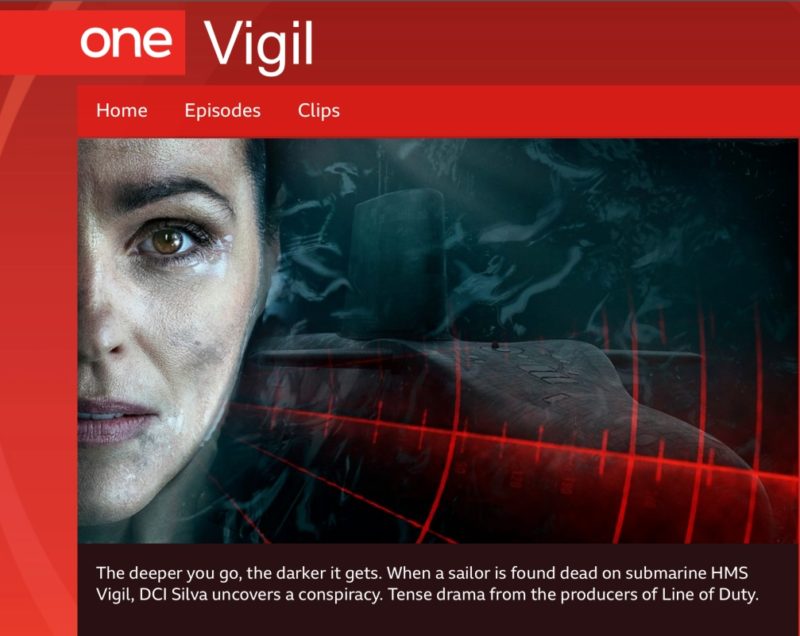
Meanwhile in the fictional ‘Vigil’ the crises and bodies pile up, with the Russians up to no good at sea and also possibly having a mole aboard the submarine, while it seems even the Americans are trailing the British vessel to see what fate befalls the boat. There are some elements in the aforementioned that do not ring true. There again a few years back, as ‘Hunter Killers’ also relates, one disgruntled Trident submarine sailor was arrested in the process of trying to simply give away secrets to the Russians for free. Some things are stranger than fiction.

As ‘Vigil’ nears its finale, viewers will need to observe the submariner’s creed and the motto of the real-life Trident missile submarine HMS Vigilant: ‘Be Vigilant & Resolute’.

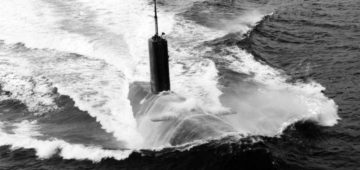



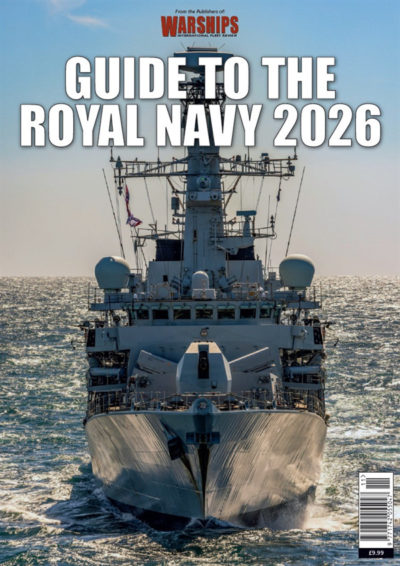
Comments
Sorry, comments are closed for this item